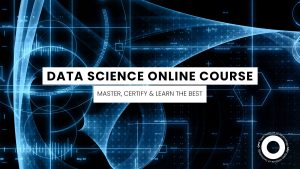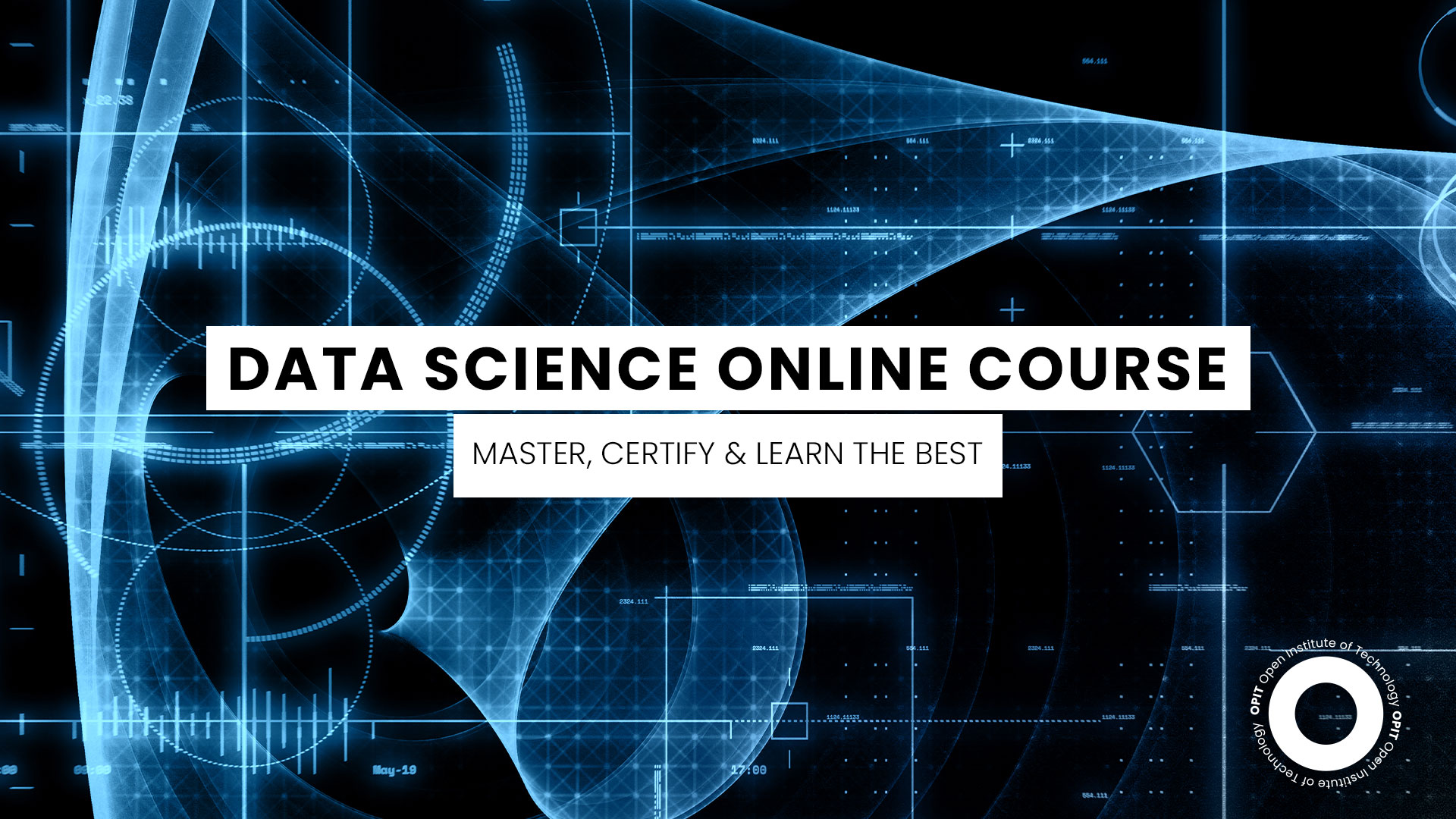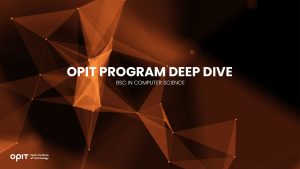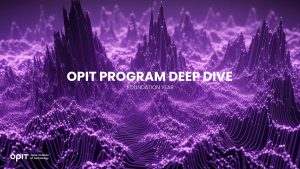

Digital technologies pretty much run the modern world. From our phones and computers to manufacturing, finance, and retail, so many aspects of life rely on machines crunching unimaginable quantities of data.
As a discipline at the core of this digital era, data science is still expanding its scope. Leading organizations in this sector never seem to get enough of new talent, and the demand for data science specialists is constantly rising.
Luckily, the same digital-first environment that depends on data science also gives ample opportunities for learning this essential trade. You can easily find a data science course online, and the same goes for certifications. Better yet, there are Masters programs you can take without leaving your home.
If the prospect of online data science courses sounds exciting, this article will recommend some of the best available programs.
Top Data Science Online Courses
There’s no shortage of options to learn data science online. The courses that made our list come from prestigious institutions and offer the most comprehensive approach to the subject.
When choosing the top courses, we followed straightforward criteria. We looked into institution reputation, hands-on experiences, lecture quality, and comprehensiveness. Here are the best online data science courses that excelled in these categories.
Metis – Data Science & Analytics Training
If you’re looking for an online course with live lectures, then Data Science & Analytics Training from Metis will be a great choice. The lecturers come from leading tech companies, giving lessons that cover the complete data science process.
While there are advanced bootcamps on offer, Metis provides a comprehensive beginner data science online course with certificate, which lasts for six weeks. The price for this course is $750 (roughly 695 euros at time of writing). This course offers an accredited certificate.
Dataquest – Introduction to Python Programming
Dataquest is somewhat unique as it represents a knowledge repository for standalone learning or as a supplementary resource. If you want to learn data science with this platform, the Introduction to Python Programming course is a quality choice.
The class is brief, informative, and suited for beginners. It consists of six lessons and a practical project, with an estimated 12 hours needed to complete the self-paced course. While the introductory course doesn’t offer certification, it will open up a learning path with Dataquest that does end up in winning an expert-reviewed credential.
A third of the learning resources is available for free. The full access to Dataquest courses will require a subscription to the service with a monthly or yearly model.
Harvard University – CS109 Data Science
Getting education from Harvard is about as elite as one can get. The CS109 Data Science course embodies all the benefits of learning from a prestigious institution like Harvard. The course teaches data science essentials, including Python programming, statistics, and machine learning. The complete material is accessible on dedicated GitHub pages. You can clone the repository to get access to the entire curriculum.
Since this is just the repository of resources, going through them won’t give you a certificate. However, it’s free and completely available online, making it an educational opportunity you shouldn’t miss. With the detailed knowledge of the basics under your belt, you’ll progress to more complex (and pricier) courses with ease.
Online Data Science Master’s Programs
You might think that getting a master’s diploma requires you to physically attend a college. And while that used to be the case only a few decades ago, you can enroll in a master’s program online. Better yet, you may do so at a reputable institution with a world-leading data science department.
We picked several top-tier online data science masters programs online. Our choice was based on similar criteria as for the courses:
- How reputable is the institution?
- Does the program offer practical knowledge?
- Are the lectures comprehensive and quality-made?
With all that in mind, here are our top choices of online master’s programs in data science.
University of Aberdeen – Data Science MSc
The University of Aberdeen is one of the leading educational institutions in the UK. The Data Science MSc program is the university’s regular MSc data science online program that’s also completely available online. The curriculum includes vital skills concerning algorithms, data analysis, mathematical modeling, and more.
With full-time learning, the degree can be completed in one year. However, you can study at your own pace and take as much time as you need between individual courses. The limit for completion is six years, and enrolling in the program will cost £14,920.
Rome Business School – International Online Master in Data Science
The International Online Master in Data Science from the Rome Business School represents an excellent opportunity to learn, get in touch with industry-leading companies, and build a professional network. The school houses bootcamps across Europe and worldwide, which may increase your job market reach.
The participation fee for this program is €6,700. If paid after starting the course, applicants can split the cost into six installments, free of interest. Covering the fee in installments in advance will grant you a 5% discount. Paying in a lump sum comes with a 10% discount.
European Leadership University – Professional Master in Data Science & Leadership
The European Leadership University offers a comprehensive program that includes individual and group work, as well as interactive workshops. Completing the Professional Master in Data Science & Leadership program will earn you a master’s degree and two recognized certificates: in data science and leadership.
The program is priced at €5,000, with the option to pay the fee in five installments during the study period. Upfront payments come with a 10% discount. The program includes classes on machine learning, statistics, data collection and handling, Python programming, and more. This master’s course lasts for 19 months.
Key Skills to Learn in Data Science
Data science consists of numerous fields, some of which are more theoretical while other lean heavily towards practical applications. The later data science aspects include essential skills that you can use in the market:
- Programming languages
- Data visualization and reporting
- Machine learning and AI
- Big data
- Statistics
In programming, languages like Python, R, and SQL are used to create program environments and write specific commands. As a data science skill, the study of programming languages explores the limitations and possibilities of existing and new languages.
Data visualization deals with representing complex datasets in a more comprehensive way. It’s related to reporting and may be viewed as its subset. Visualization tools include charts, graphs, and presentations.
Machine learning might be the most well-known aspect of data science. Technologies like deep learning are at the core of AI development, enabling machines to learn from limited data input. Recently, great advances were made in unsupervised learning, which doesn’t require human input at all.
Big data refers to processing and analyzing large amounts of information. Handling massive data volumes presents specific challenges in terms of computational capacity and error reduction.
Finally, statistics form one of the cornerstones of practical data science use. Statistical analysis is helpful in business, demographics, and numerous social and natural sciences. Reliable statistics help researchers create predictive models and projections, allowing for efficient planning down the line.
Benefits of Earning a Data Science Certificate or Degree
Getting a degree or certificate in data science offers you an edge both in professional improvement and in the job market. The very process of gaining credentials is an opportunity to learn and practice essential skills. Plus, you can build a respectful portfolio along the way.
A degree or certificate means better job opportunities. Every reputable employer in the field will want to see recognized credentials from their applicants, and that’s particularly true when hiring for better-paid positions.
If you’ve already got a starting-level job in data science, credentials from reputable institutions will help advance your career. That kind of growth also creates a potential for better salaries and work benefits.
Finally, once you enroll in a data science degree or certificate program, you’ll meet other people pursuing similar interests. This will be an excellent opportunity for networking. Combined with the credentials, your new network of colleagues can help you advance even further.
Tips for Choosing the Right Data Science Online Course or Program
When you start searching for the right program online, it’s vital to consider several factors:
- The content and curriculum of the course
- Instructor expertise and reputation in the industry
- The duration of the program
- How flexible the course is
- Pricing and whether there are options for financial aid
- Testimonials or reviews from previous students
Besides these considerations, you should account for your personal preferences. Define your goals and what you want to achieve with the program. Also, it’s important for the program to match the learning style that suits you the best.
Gain the Essential Skills for the Hottest Profession Today
Our data science course suggestions include a selection of programs from the most respected industry leaders. With the high-quality courses on offer, all you’ll need to do is pick the program that matches your career goals.
Today’s job market has a high demand for data science experts. Getting certified or earning a degree in the field will help you start a career easier, which is why you should consider this important move as soon as possible.
Related posts

Computer Science is fast becoming one of the most valuable fields of study, with high levels of demand and high-salaried career opportunities for successful graduates. If you’re looking for a flexible and rewarding way to hone your computing skills as part of a supportive global community, the BSc in Computer Science at the Open Institute of Technology (OPIT) could be the perfect next step.
Introducing the OPIT BSc in Computer Science
The OPIT BSc in Computer Science is a bachelor’s degree program that provides students with a comprehensive level of both theoretical and practical knowledge of all core areas of computer science. That includes the likes of programming, databases, cloud computing, software development, and artificial intelligence.
Like other programs at OPIT, the Computer Science BSc is delivered exclusively online, with a mixture of recorded and live content for students to engage with. Participants will enjoy the instruction of world-leading lecturers and professors from various fields, including software engineers at major tech brands and esteemed researchers, and will have many paths open to them upon graduation.
Graduates may, for example, seek to push on with their educational journeys, progressing on to a specialized master’s degree at OPIT, like the MSc in Digital Business and Innovation or the MSc in Responsible Artificial Intelligence. Or they could enter the working world in roles like software engineer, data scientist, web developer, app developer, or cybersecurity consultant.
The bullets below outline the key characteristics of this particular course:
- Duration: Three years in total, spread across six terms.
- Content: Core courses for the first four terms, a student-selected specialization for the fifth term, and a capstone project in the final term.
- Focus: Developing detailed theoretical knowledge and practical skills across all core areas of modern computer science.
- Format: Entirely online, with a mixture of live lessons and asynchronous content you can access 24/7 to learn at your own pace.
- Assessment: Progressive assessments over the course of the program, along with a capstone project and dissertation, but no final exams.
What You’ll Learn
Students enrolled in the BSc in Computer Science course at OPIT will enjoy comprehensive instruction in the increasingly diverse sectors that fall under the umbrella of computer science today. That includes a close look at emerging technologies, like AI and machine learning, as well as introductions to the fundamental skills involved in designing and developing pieces of software.
The first four terms are the same for all students. These will include introductions to software engineering, computer security, and cloud computing infrastructure, as well as courses focusing on the core skills that computer scientists invariably need in their careers, like project management, quality assurance, and technical English.
For the fifth term, students will have a choice. They can select five electives from a pool of 27, or select one field to specialize in from a group of five. You may choose to specialize in all things cybersecurity, for example, and learn about emerging cyber threats. Or you could focus more on specific elements of computer science that appeal to your interests and passions, such as game development.
Who It’s For
The BSc in Computer Science program can suit a whole range of prospective applicants and should appeal to anyone with an interest or passion for computing and a desire to pursue a professional career in this field. Whether you’re seeking to enter the world of software development, user experience design, data science, or another related sector, this is the course to consider.
In addition, thanks to OPIT’s engaging, flexible, and exclusively online teaching and learning systems, this course can appeal to people from all over the globe, of different ages, and from different walks of life. It’s equally suitable for recent high school graduates with dreams of making their own apps to seasoned professionals looking to broaden their knowledge or transition to a different career.
The Value of the BSc in Computer Science Course at OPIT
Plenty of universities and higher education establishments around the world offer degrees in computer science, but OPIT’s program stands out for several distinctive reasons.
Firstly, as previously touched upon, all OPIT courses are delivered online. Students have a schedule of live lessons to attend, but can also access recorded content and digital learning resources as and when they choose. This offers an unparalleled level of freedom and flexibility compared to more conventional educational institutions, putting students in the driving seat and letting them learn at their own pace.
OPIT also aims not merely to impart knowledge through lectures and teaching, but to actually help students gain the practical skills they need to take the next logical steps in their education or career. In other words, studying at OPIT isn’t simply about memorizing facts and paragraphs of text; it’s about learning how to apply the knowledge you gain in real-world settings.
OPIT students also enjoy the unique benefits of a global community of like-minded students and world-leading professors. Here, distance is no barrier, and while students and teachers may come from completely different corners of the globe, all are made to feel welcome and heard. Students can reach out to their lecturers when they feel the need for guidance, answers, and advice.
Other benefits of studying with OPIT include:
- Networking opportunities and events, like career fairs, where you can meet and speak with representatives from some of the world’s biggest tech brands
- Consistent support systems from start to finish of your educational journey in the form of mentorships and more
- Helpful tools to expedite your education, like the OPIT AI Copilot, which provides personalized study support
Entry Requirements and Fees
To enroll in the OPIT BSc in Computer Science and take your next steps towards a thrilling and fulfilling career in this field, you’ll need to meet some simple criteria. Unlike other educational institutions, which can impose strict and seemingly unattainable requirements on their applicants, OPIT aims to make tech education more accessible. As a result, aspiring students will require:
- A higher secondary school leaving certificate at EQF Level 4, or equivalent
- B2-level English proficiency, or higher
Naturally, applicants should also have a passion for computer science and a willingness to study, learn, and make the most of the resources, community, and support systems provided by the institute.
In addition, if you happen to have relevant work experience or educational achievements, you may be able to use these to skip certain modules or even entire terms and obtain your degree sooner. OPIT offers a comprehensive credit transfer program, which you can learn more about during the application process.
Regarding fees, OPIT also stands out from the crowd compared to conventional educational institutions, offering affordable rates to make higher tech education more accessible. There are early bird discounts, scholarship opportunities, and even the option to pay either on a term-by-term basis or a one-off up-front fee.

The Open Institute of Technology (OPIT) provides a curated collection of courses for students at every stage of their learning journey, including those who are just starting. For aspiring tech leaders and those who don’t quite feel ready to dive directly into a bachelor’s degree, there’s the OPIT Foundation Program. It’s the perfect starting point to gain core skills, boost confidence, and build a solid base for success.
Introducing the OPIT Foundation Year Program
As the name implies, OPIT’s Foundation Program is about foundation-level knowledge and skills. It’s the only pre-bachelor program in the OPIT lineup, and successful students on this 60-ECTS credit course will obtain a Pre-Tertiary Certificate in Information Technology upon its completion. From there, they can move on to higher levels of learning, like a Bachelor’s in Digital Business or Modern Computer Science.
In other words, the Foundation Program provides a gentle welcome into the world of higher technological education, while also serving as a springboard to help students achieve their long-term goals. By mixing both guided learning and independent study, it also prepares students for the EQF Level 4 experiences and challenges they’ll face once they enroll in a bachelor’s program in IT or a related field.
Here’s a quick breakdown of what the OPIT Foundation Program course involves:
- Duration: Six months, split into two terms, with each term lasting 13 weeks
- Content: Three courses per term, with each one worth 10 ECTS credits, for a total of 60
- Focus: Core skills, like mathematics, English, and introductory-level computing
- Format: Video lectures, independent learning, live sessions, and digital resources (e-books, etc.)
- Assessment: Two to three assessments over the course of the program
What You’ll Learn
The OPIT Foundation Program doesn’t intensely focus on any one particular topic, nor does it thrust onto you the more advanced, complicated aspects of technological education you would find in a bachelor’s or master’s program. Instead, it largely keeps things simple, focusing on the basic building blocks of knowledge and core skills so that students feel comfortable taking the next steps in their studies.
It includes the following courses, spread out across two terms:
- Academic Skills
- Mathematics Literacy I
- Mathematics Literacy II
- Internet and Digital Technology
- Academic Reading, Writing, and Communication
- Introduction to Computer Hardware and Software
Encompassing foundational-level lessons in digital business, computer science, and computer literacy, the Foundation Program produces graduates with a commanding knowledge of common operating systems. Exploring reading and writing, it also helps students master the art of communicating their ideas and responses in clear, academic English.
Who It’s For
The Foundation Year program is for people who are eager to enter the world of technology and eventually pursue a bachelor’s or higher level of education in this field, but feel they need more preparation. It’s for the people who want to work on their core skills and knowledge before progressing to more advanced topics, so that they don’t feel lost or left behind later on.
It can appeal to anyone with a high school-level education and ambitions of pushing themselves further, and to anyone who wants to work in fields like computer science, digital business, and artificial intelligence (AI). You don’t need extensive experience or qualifications to get started (more on that below); just a passion for tech and the motivation to learn.
The Value of the Foundation Program
With technology playing an increasingly integral role in the world today, millions of students want to develop their tech knowledge and skills. The problem is that technology-oriented degree courses can sometimes feel a little too complex or even inaccessible, especially for those who may not have had the most conventional educational journeys in the past.
While so many colleges and universities around the world simply expect students to show up with the relevant skills and knowledge to dive right into degree programs, OPIT understands that some students need a helping hand. That’s where the Foundation Program comes in – it’s the kind of course you won’t find at a typical university, aimed at bridging the gap between high school and higher education.
By progressing through the Foundation Program, students gain not just knowledge, but confidence. The entire course is aimed at eliminating uncertainty and unease. It imbues students with the skills and understanding they need to push onward, to believe in themselves, and to get more value from wherever their education takes them next.
On its own, this course won’t necessarily provide the qualifications you need to move straight into the job market, but it’s a vital stepping stone towards a degree. It also provides numerous other advantages that are unique to the OPIT community:
- Online Learning: Enjoy the benefits of being able to learn at your own pace, from the comfort of home, without the costs and inconveniences associated with relocation, commuting, and so on.
- Strong Support System: OPIT professors regularly check in with students and are on hand around the clock to answer queries and provide guidance.
- Academic Leaders: The OPIT faculty is made up of some of the world’s sharpest minds, including tech company heads, experienced researchers, and even former education ministers.
Entry Requirements and Fees
Unlike OPIT’s other, more advanced courses, the Foundation Program is aimed at beginners, so it does not have particularly strict or complex entry requirements. It’s designed to be as accessible as possible, so that almost anyone can acquire the skills they need to pursue education and a career in technology. The main thing you’ll need is a desire to learn and improve your skills, but applicants should also possess:
- English proficiency at level B2 or higher
- A Secondary School Leaving Certificate, or equivalent
Regarding the fees, OPIT strives to lower the financial barrier of education that can be such a deterrent in conventional education around the world. The institute’s tuition fees are fairly and competitively priced, all-inclusive (without any hidden charges to worry about), and accessible for those working with different budgets.
Given that all resources and instruction are provided online, you can also save a lot of money on relocation and living costs when you study with OPIT. In addition, applicants have the option to pay either up front, with a 10% discount on the total, or on a per-term basis, allowing you to stretch the cost out over a longer period to ease the financial burden.
Have questions?
Visit our FAQ page or get in touch with us!
Write us at +39 335 576 0263
Get in touch at hello@opit.com
Talk to one of our Study Advisors
We are international
We can speak in:


